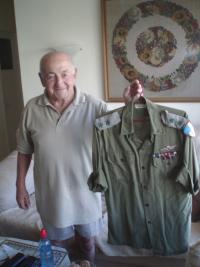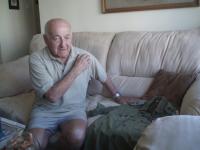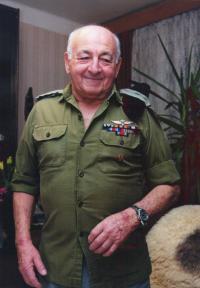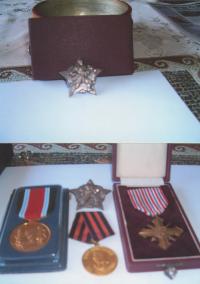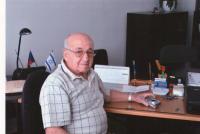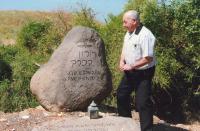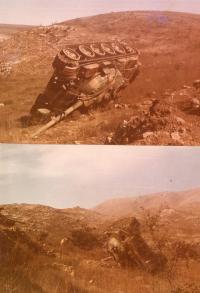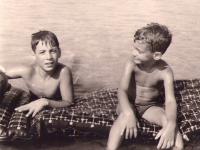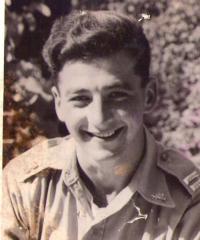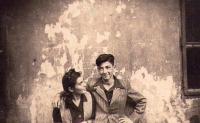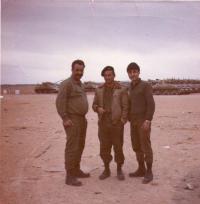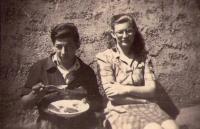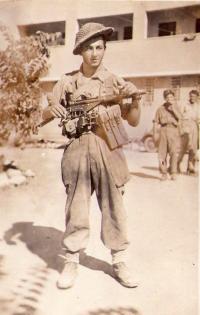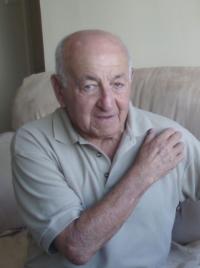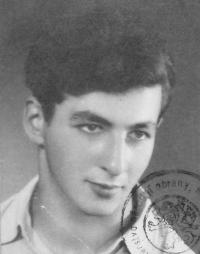You have to decide who you want to marry. You either get married with the army or you marry your woman

Stáhnout obrázek
Mr. Petr Bachrach was born on February 5th, 1992 in the Polish town of Bielsk. He comes from a Jewish, Czech, and German speaking family. When WWII began in 1939, his family ran away to Slovakia, where he attended a Jewish school until 1942. His whole family, except for his uncle on his father‘s side, was transported to concentration camps- where they all died. The same fate was in order for Petr Backrach, but he managed to escape from the transport train in 1943 and hide away in the mountains. After a while, he joined a group of partisans and together they participated in several operations of the Slovak National Uprising. After the arrival of the Red Army, he was enlisted, and remained enlisted, until the end of the war. He then left the army with an ENS honor. After the war, he became a car repairman and passed several graduation exams. After the state of Isreal was established, he signed up for Palmach and fought in the Israeli fight for independence. Despite the fact that he retired from the army in 1952, he was again called to duty in the Sinai War (1956), Six Day War (1967), and also the Yom Kippur War (1973). In 1982, he also participated in the Peace for Galilea operation- where one of his sons died. He lived in the Czech Republic during the years 1990-2005. He now lives in Isreal, which he considers to be his home.
